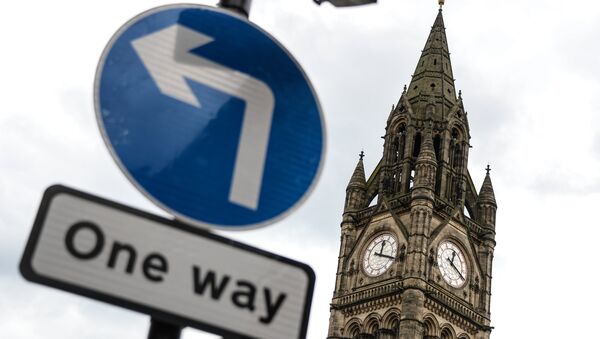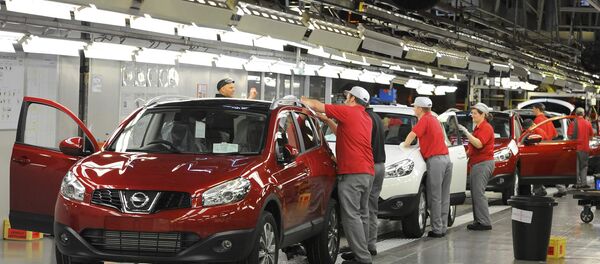Sputnik: Would a no deal Brexit be as bad as people say it is and would a no deal be better than the chequers plan?
Henry Bolton: There is a default situation with a no deal Brexit and that’s WTO rules. Something that’s important to recognise is that the treaties of the EU do not allow any of its institutions to negotiate a trade agreement with a member state.
Therefore we cannot have a rock solid agreement until after the UK has left. We are going to be in a situation where the UK leaves and can then make an agreement, now that’s something that seems to have been missed by all political parties and the reason for that, is Theresa May in particular; as Prime Minister, wants to have a headline that says Prime Minister gets agreement with Brussels, prior to Brexit. That’s not going to happen.
We are going to have to apply certain tariffs on goods, that will be disadvantageous to the UK and to importers and exporters, but others that will be advantageous. An example would be processed chicken, the EU requires the UK to apply an 88% tariff on this, whereas the WTO applies 17.5% tariffs. Processed chicken would therefore be cheaper for UK consumers, there are other goods where that would be the opposite, but it would balance out.
No deal is going to be what happens, but there are advantages to that.
Henry Bolton: There is a limit now and she’s had a bad conference, she has not demonstrated any clear vision for the future of the country or for the Conservative Party, so her colleagues will be discussing whether or not she goes after we’ve left the EU, or whether she stays to see through the transition period.
I think for the good of the country she needs to go sooner rather than later. The transition will be a continued period of negotiation; she has proven that she is prepared to compromise the UK’s position in future trade deals.
I see it happening very soon after the March departure from the EU or at the end of the transition period.
Sputnik: Who could potentially replace the Prime Minister?
Henry Bolton: It’s going to be somebody whose name hasn’t really emerged yet. Boris Johnson might be the popular favourite, but within the Conservative Party he’s a divisive figure and the Conservatives always put the party before the country so I think it’s unlikely to be him.
Jacob Rees-Mogg is very popular in the country but not necessarily across the Conservative Party, so I think we’re going to end up with a situation rather like the United Nations, where they select a secretary general who is the lowest common denominator rather than somebody who is a dynamic leader.
The views expressed in this article are those of the speaker, and do not necessarily reflect those of Sputnik.


